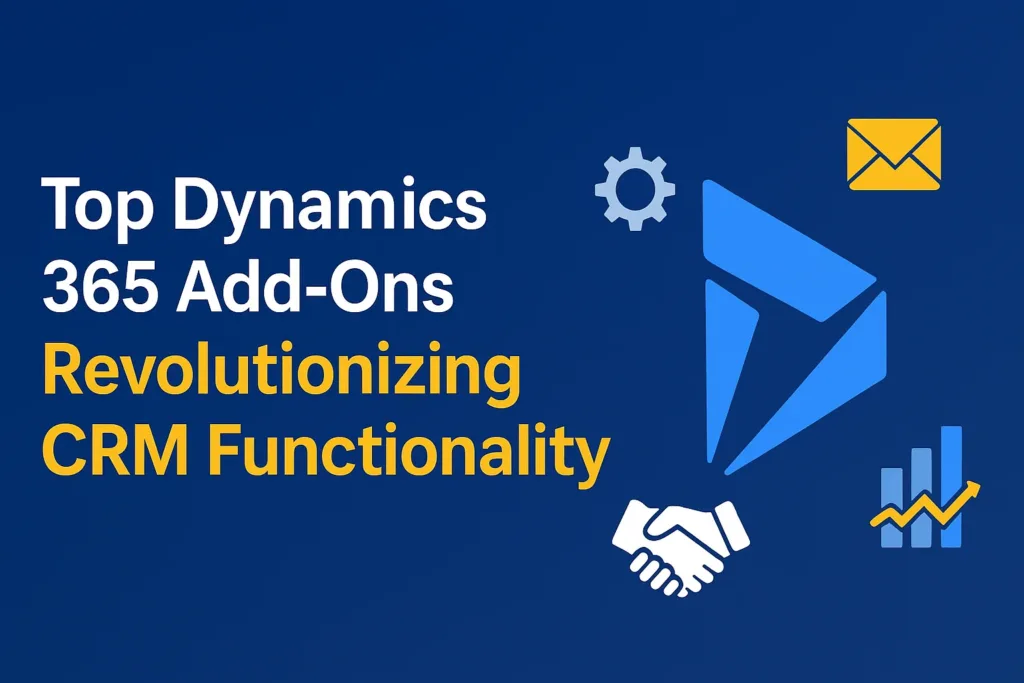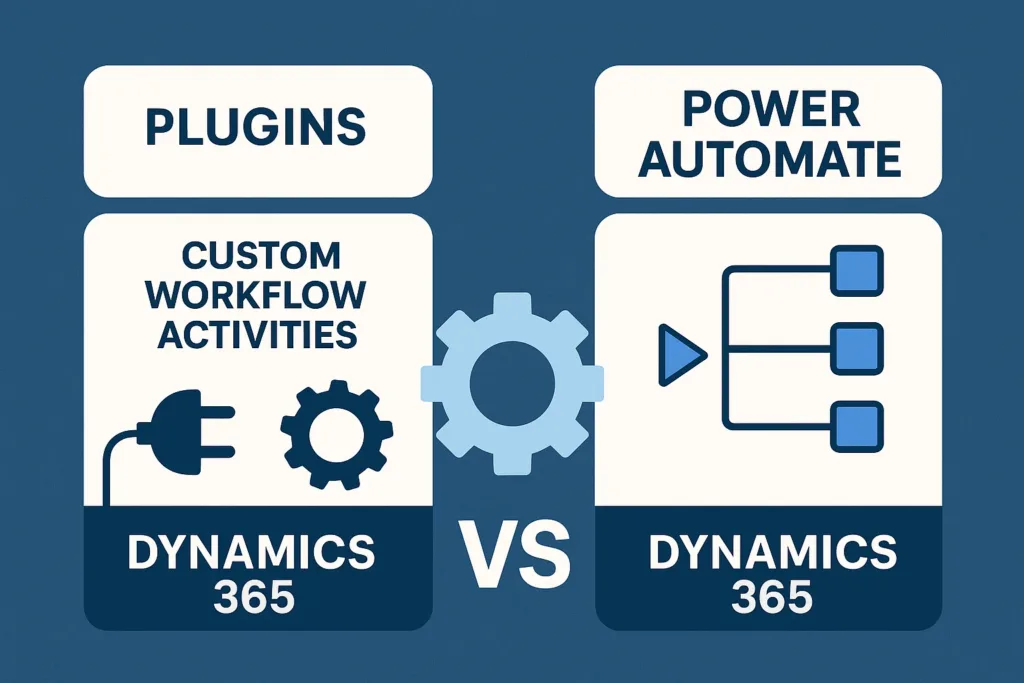Table of Content
In today’s data-driven world, Dynamics 365 is a vital tool for businesses that rely on actionable insights. However, not all reporting methods are created equal. To truly unlock the full potential of Dynamics 365 reporting, you need to go beyond basic queries — and that’s where Advanced FetchXML comes into play.
This article explores how Advanced FetchXML helps optimize Dynamics 365 reports, improve performance, and drive smarter business decisions.
What is FetchXML in Dynamics 365?
FetchXML is a proprietary query language used in Microsoft Dataverse (formerly CDS) and Dynamics 365 CRM. It’s designed to retrieve data efficiently through the web API or reports, particularly for advanced business intelligence and analytics.
Unlike SQL, FetchXML is specifically optimized for Dynamics 365, ensuring smooth communication between entities and records within the CRM.
Why Use Advanced FetchXML for Reporting
While standard FetchXML handles basic queries, Advanced FetchXML enables deeper insights and improved performance. Let’s explore the key advantages:
| Feature | Basic FetchXML | Advanced FetchXML |
|---|---|---|
| Query Complexity | Simple filters | Complex joins and aggregates |
| Performance | Slower with large data sets | Optimized for speed |
| Report Customization | Limited | Highly flexible |
| Data Aggregation | Minimal | Supports advanced grouping and totals |
Key Benefits of Advanced FetchXML
- 🔹 Improved query performance through efficient data filtering
- 🔹 Seamless integration with Power BI and SSRS reports
- 🔹 Enhanced flexibility for custom dashboards
- 🔹 Better control over grouped and aggregated data
- 🔹 Advanced filtering for dynamic report generation
How Advanced FetchXML Enhances Dynamics 365 Reporting

1. Complex Data Joins
Advanced FetchXML supports multiple entity joins. You can merge data from related tables, giving you a complete view of your business without compromising speed.
Example:
Fetching all accounts with related opportunities and associated contacts can be done in a single query — reducing redundant API calls.
2. Aggregations and Grouping
With features like SUM,
COUNT, and AVG, FetchXML allows users to aggregate data directly in the query.
This eliminates the need for post-processing in Power BI or Excel.
For instance:
You can calculate the total revenue per sales region directly within FetchXML, saving time and system resources.
3. Optimized Filtering and Sorting
Advanced FetchXML supports multi-level filters and logical operators (AND, OR, NOT), enabling precise data extraction.
Example Use Case:
A CRM manager wants to:
- Retrieve active leads created this quarter
- Exclude those without phone numbers
- Sort them by creation date
FetchXML can achieve this in a single, optimized query — ideal for real-time dashboards.
4. Integration with SSRS and Power BI
FetchXML isn’t limited to Dynamics 365. It integrates seamlessly with SQL Server Reporting Services (SSRS) and Power BI.
With Power BI’s native FetchXML connector, you can:
- Visualize CRM data dynamically
- Schedule automated report updates
- Create cross-entity insights
This makes it a perfect choice for data analysts and CRM administrators who aim for performance and scalability.
5. Advanced FetchXML in Plugins and Workflows
Developers can embed FetchXML into plugins, Power Automate flows, or custom applications to automate reporting and decision-making processes.
Example Scenarios:
- Triggering alerts when sales targets are met
- Updating dashboard metrics in real time
- Generating performance reports automatically
Best Practices for Optimizing FetchXML Queries
To make the most out of FetchXML, follow these expert tips:
| Tip | Purpose |
|---|---|
| Limit attributes | Fetch only necessary fields to improve speed |
| Use indexed columns | Enhance query performance |
| Avoid nested filters | Keep queries readable and maintainable |
| Leverage aggregate functions | Reduce post-processing load |
| Test in smaller batches | Optimize before large-scale deployment |
Common FetchXML Query Example
<fetch distinct="false" mapping="logical" aggregate="true">
<entity name="opportunity">
<attribute name="estimatedvalue" aggregate="sum" alias="total_revenue" />
<attribute name="name" groupby="true" alias="opportunity_name" />
<filter type="and">
<condition attribute="statecode" operator="eq" value="0" />
</filter>
</entity>
</fetch>
This query calculates the total estimated revenue for all active opportunities — perfect for sales reporting dashboards.
Troubleshooting Common FetchXML Issues
Even experienced developers run into FetchXML challenges. Here’s how to fix the most common ones:
- ⚠️ Timeout errors: Limit records or use paging to improve performance
- ⚙️ Incorrect joins: Verify entity relationships in Dynamics schema
- 🔁 Duplicate records: Use
distinct="true"in the query - 📊 Slow reports: Avoid unnecessary attributes and filters

When to Use Advanced FetchXML Over OData
| Scenario | Best Choice |
|---|---|
| Need aggregated or grouped data | FetchXML |
| Simple read operations | OData |
| SSRS or Power BI integration | FetchXML |
| Real-time app integration | OData |
By choosing FetchXML for the right use cases, you can significantly improve both reporting efficiency and system performance.
Final Thoughts
Advanced FetchXML is more than just a query language — it’s a powerful data engine for Dynamics 365 reporting.
With the right structure and optimization, you can deliver faster, cleaner, and more insightful reports that help decision-makers act swiftly.
How Sky Soft Connection Can Help
At Sky Soft Connection, we specialize in custom Dynamics 365 solutions, Power BI integration, and advanced reporting systems using FetchXML.
Our team has successfully delivered 40,000+ hours of CRM customization, data visualization, and Microsoft Power Platform solutions — helping organizations streamline reporting and make smarter, data-backed decisions.
👉 Whether you need customized reports, FetchXML optimization, or complete CRM architecture design, Sky Soft Connection can help you harness the full potential of your Dynamics 365 environment.
Let’s transform your data into powerful business insights.
Read more : dynamics 365 crm for marketing professionals
FAQs – Advanced FetchXML for Optimized Dynamics 365 Reporting
Advanced FetchXML allows users to perform complex queries, aggregations, and multi-entity joins directly within Dynamics 365. This helps generate faster, more detailed reports without requiring external tools or manual data processing.
Yes, FetchXML integrates seamlessly with both Power BI and SQL Server Reporting Services (SSRS), allowing you to visualize and automate Dynamics 365 reports efficiently.
You can optimize FetchXML queries by limiting attributes, using indexed columns, avoiding nested filters, and leveraging aggregate functions to reduce post-processing load and improve report speed.
 is a software solution company that was established in 2016. Our quality services begin with experience and end with dedication. Our directors have more than 15 years of IT experience to handle various projects successfully. Our dedicated teams are available to help our clients streamline their business processes, enhance their customer support, automate their day-to-day tasks, and provide software solutions tailored to their specific needs. We are experts in Dynamics 365 and Power Platform services, whether you need Dynamics 365 implementation, customization, integration, data migration, training, or ongoing support.
is a software solution company that was established in 2016. Our quality services begin with experience and end with dedication. Our directors have more than 15 years of IT experience to handle various projects successfully. Our dedicated teams are available to help our clients streamline their business processes, enhance their customer support, automate their day-to-day tasks, and provide software solutions tailored to their specific needs. We are experts in Dynamics 365 and Power Platform services, whether you need Dynamics 365 implementation, customization, integration, data migration, training, or ongoing support.


